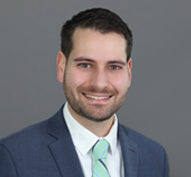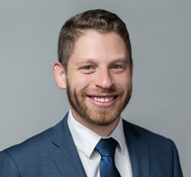2020 Frank Wheat Memorial Award Nominees
Team Nominee: Migrant Justice, Washington, D.C.
Since 2016, there has been a growing pattern and practice of federal immigration authorities targeting immigration activists and leaders in response to their political speech and advocacy. In Vermont, U.S. Immigration and Customs Enforcement (“ICE”) and the Department of Homeland Security (“DHS”)—with assistance from the Vermont Department of Motor Vehicles (“DMV”)—targeted, arrested, and detained no fewer than nine members of the prominent, local immigrant rights group Migrant Justice for their political speech and advocacy.
On November 14, 2018, Gibson Dunn, alongside co-counsel at the National Center for Law and Economic Justice, the ACLU of Vermont, the Center for Constitutional Rights, and the National Immigration Law Center, filed a lawsuit against the Vermont DMV, ICE, and DHS on behalf of Migrant Justice and three activists. The lawsuit alleged that ICE and DHS conducted an unlawful, multi-year operation to surveil, harass, arrest, and detain the organization’s members and leaders, in retaliation against the plaintiffs’ First Amendment speech and assembly. In addition, the lawsuit asserted that the Vermont DMV engaged in an unlawful campaign of discriminatory information-sharing and collaboration with federal immigration agents, particularly targeting Latinx individuals in violation of the Fourteenth Amendment.
After two years of strategic advocacy and litigation, the Migrant Justice team obtained two separate settlements with local and federal government authorities in a lawsuit concerning the First and Fourteenth Amendment rights of immigrants. This case has garnered significant recognition for the firm, including distinguished awards from the National Center for Law and Economic Justice and the National Immigration Law. The Gibson Dunn team was led by New York partner Joel Cohen and included associates Amanda Aycock, Jaclyn Neely, Alina Wattenberg, and Nealofar Panjshiri.
INDIVIDUAL NOMINEES
 
On November 30, 2020, San Francisco associates Anthony Moreno and Craig Streit, under the close supervision of Rachel Brass, successfully obtained asylum on behalf of pro bono client Y.M., a Cameroonian refugee. The asylum grant was unlikely, given the unfavorable metrics underlying the case: the venue, Oakdale Immigration Court, is considered one of the nation’s harshest venues, and the presiding judge, Judge John A. Duck Jr., grants only 14.7 percent of asylum claims (notably, less than half the nationwide rate).
In his home country, Y.M. had suffered persecution for opposing discrimination against the English-speaking minority of Cameroonians. In September 2017, he was arrested during a march for equal rights; during his ensuing three-day detention, each morning and evening he was beaten, hit with machetes, and burned on his ribs, leaving permanent scars. Then, in January 2019, he was stabbed by police forces after he voiced opposition to their 3 a.m. raid of his village, resulting in a three-day hospitalization. Y.M. fled when the government issued a specious warrant for his arrest for “hostilities to the fatherland” and put him and his family under surveillance.
Y.M. initially proceeded pro se in immigration court. He claimed asylum and other relief, but was denied by the Immigration Judge (“IJ”) on May 5, 2020. After the Catholic Legal Immigration Network flagged his case, Gibson Dunn was retained as pro bono to represent Y.M. in his appeal to the Board of Immigration Appeals. On the basis of the papers filed by Gibson Dunn, the Board reversed and remanded the IJ’s decision. The Board’s order came in the nick of time: the decision issued on October 8, days before ICE rounded up Cameroonian refugees nationwide, including refugees in the detention center where Y.M. was detained, for deportation. A week later, over a hundred Cameroonians were deported to face looming peril on what the media has described as “death planes.” Indeed, the whereabouts of 57 deported refugees remain unknown to their families in Douala, the major city to which Y.M. would likely have been sent. The Board’s remand saved Y.M. from this fate.
Gibson Dunn continued to represent Y.M. in the remanded proceedings. The IJ gave the Gibson Dunn team less than two weeks to collect supplemental evidence, including witness affidavits from Y.M.’s family in Cameroon, additional corroborating evidence, and a 25-page expert report, as well as to submit a prehearing brief. And the IJ denied Gibson Dunn’s motion to appear remotely, despite soaring COVID-19 infections nationwide and in Louisiana (the location of the court) in particular. The team, however, was not deterred.
Anthony took all possible COVID-related precautions and appeared in person at the November 30, 2020 hearing. After an almost two-hour merits hearing, the IJ rendered an oral decision granting all relief, including asylum and withholding of removal. Y.M. was released in time to join his family in Florida for the holidays. He will resume his education—which he had been forced to abandon after his persecution began—and pursue a career in IT.
INDIVIDUAL NOMINEES

In November 2020, David A. Schnitzer brought a decade-long legal odyssey for his client, Mr. Andrews, to a successful conclusion. David secured an order from the Board of Immigration Appeals allowing Mr. Andrews to return to the United States to reunite with his wife, children, and grandchildren. Gibson Dunn had been working since early 2012 to overturn an order that sent Mr. Andrews to Guyana, a country he had lawfully emigrated from nearly four decades ago. David joined the effort in 2017, and the 2020 win would not have been possible without his dogged pursuit of the principle of equal treatment under the law.
Mr. Andrews came to the United States as a lawful permanent resident in 1982, at the age of 17. For decades, he worked productively as a plumber and later a plasterer, much of the time employed by the City of New York. After his brother was murdered in 1989, Mr. Andrews became drug dependent. But he got help and completed rehabilitation, remaining sober for the next 13 years. In 2006, an unscrupulous cousin mismanaged money that Mr. Andrews had invested in a family business. Left penniless, he relapsed to drug use. He was arrested on state drug charges in New York, and agreed to plead guilty and enter a rehab program.
In 2009, the Department of Homeland Security initiated removal proceedings, contending that the state law conviction was a controlled substance offense, as defined by federal immigration law, making him removable from the United States. The government further alleged that the New York statute was an aggravated felony within the meaning of federal immigration law, making Mr. Andrews ineligible for cancellation of removal. Mr. Andrews’ attorney at the time made a tactical blunder, conceding that the conviction was both a controlled substance offense and an aggravated felony. Tragically, even the immigration judge said it would have taken him 15 seconds to conclude that removal should have been cancelled, but the aggravated felony designation took that option away. That decision was affirmed by the Board of Immigration Appeals (“BIA”).
It was at this point that Gibson Dunn entered the picture, filing a petition for review with the U.S. Court of Appeals for the Second Circuit. Shortly before oral argument, another panel of the Second Circuit ruled in a different case that a similarly worded New York criminal statute was an aggravated penalty. The panel in Mr. Andrews’ case relied on this intervening ruling to conclude that it had no choice but to issue a summary order denying the petition.
At this point, Mr. Andrews was removed to Guyana, where he has struggled to support himself and keep in good spirits. But David did not give up hope or give up his efforts on Mr. Andrews’ behalf. Four years later, the Second Circuit revisited this issue and overturned its ruling that the New York law under which Mr. Andrews had been convicted was an aggravated felony that requires removal. At this point, David asked the BIA to reconsider the earlier order of removal on the ground of changed circumstances, but that request was denied. David then worked on petition for review in the Second Circuit. Through thorough briefing and at oral argument, David effectively dismantled each of the government’s grounds for upholding the BIA’s ruling.
Soon after argument, the Court ruled for Mr. Andrews. After years of separation from his wife and family, Mr. Andrews landed safely in New York City and was reunited with his family in the early days of 2021.
|



